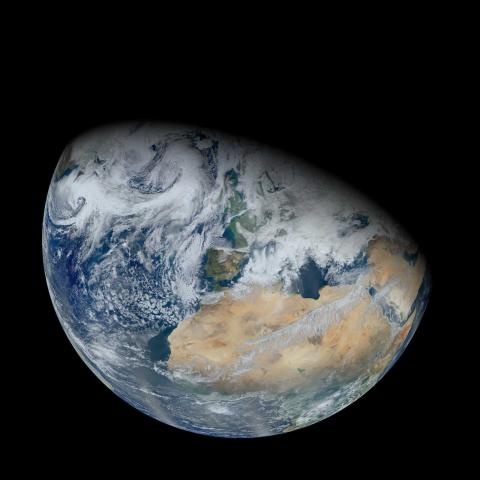
In the first post in this series I explored several implications of rising inequality with respect to military capacity and international security. In this post, I will explore the relationship between inequality and internal stability.
The association between economic disparities and social upheaval exerts a strong hold on our political imagination. From the French Revolution through to the Revolutions of 1848, and via Marx to the communist revolutions of the 20th century, modernity has generated repeated narratives of the striking political consequences of unrestrained inequity. Such images pervade contemporary popular culture, from the enduring appeal of Les Misérables to the post-financial crisis commentary of the Dark Knight Rises. But what, if anything, do we know about the causal link between inequality, political crises, and conflict?
While inequality is frequently of political concern, it is rarely sufficient on its own to generate social crisis. Indeed, a dizzying range of variables mediate the connection between inequality and conflict. Three in particular stand out as proving particularly decisive over the broad sweep of the past century.
First, institutions matter in channeling the political impact of inequality. This was clearly demonstrated during the period of industrialisation from the late 19th through the early 20th century. Marx's expectations of escalating proletarian uprisings in the industrialised heart of Europe were stymied by the unexpected flexibility of representative and quasi-representative political systems. Labour militancy was certainly part of political landscape, as were elite efforts to suppress the political organisation of workers. However, the expansion and resilience of suffrage laid the foundations for the emergence of social democratic parties that secured a degree of economic adjustment while working through existing political institutions.
Second, in the absence of flexible political institutions, external shocks to the capacity of the existing order have often proven necessary to translate inequality into revolt. [fold]
Without Russia's disastrous performance in World War I, for example, it is an open question whether socio-economic tensions would have translated into political revolution. In this case, external pressures sapped the adaptive resources of existing institutions while promoting infighting among elites. The result was a disruption to the state's coercive capability to maintain the status quo, and the emergence of an opportunity for under-represented socio-economic groups to be radicalised and mobilised.
The third factor, which has arguably become more salient with the second wave of globalisation, is the effect of growing wealth mobility on the incentives for political conflict. As economic assets have become more mobile, it is harder to successfully conduct campaigns of economic redistribution, whether violent or not. With the rise of integrated global financial markets, it has become increasingly easy for oligarchs to remove their wealth from the path of the peasants with pitchforks, either by liquidating their ownership of publicly held firms or by obscuring that ownership through a various intermediaries. Further, as commercial activity has become more technologically sophisticated, economic value increasingly inheres in human and intellectual capital. Such assets are relatively easy for firms to reposition, and hard to coerce.
This has important systemic implications because mobility tends to be higher in advanced industrialised societies than in less developed ones. It has become much harder for states to engage in redistribution of income in the those countries, which reduces the incentive for dissatisfied groups within those societies to engage in violent bids to seize political power. While activists may grit their teeth at the inability of politicians to address egregious imbalances in wealth, they are also keenly aware that the structural challenge of inequality is that it increasingly lies beyond the grasp of national institutions. Given the reduced payoffs from success, why risk repression by subverting the existing political order?
In largely agrarian or resource-extractive societies, however, the redistributive potential of revolt has persisted. A mining magnate may be able to flee with much of his personal wealth, but the resources themselves remain. Likewise, arable land is pretty hard to relocate. As a consequence, the incentive to buck the existing order persists, even in the face of violence. When combined with the presence of authoritarian regimes and subject to external shocks (whether it be the external strategic environment, or a sharp change in fundamental commodity or food prices), the possibility exists that inequality will translate in to revolutionary challenges to the existing order.
So what are some of the concrete manifestations of these factors out in the world today? Perhaps the most important is that they throw some light on the different trajectories taken by two of the most significant political responses to inequality in recent years, namely the Occupy movements and the Arab Spring.
The former occurred within democratic societies in which representative institutions were able to disperse popular anger, while the reality of extensive capital and human capital mobility have flummoxed attempts at advancing a politically viable platform. In the case of the latter, autocratic institutions lacked the flexibility to defuse popular sentiment, while the salience of immobile energy wealth and agricultural interests hinted at the practical possibilities for redressing disparities.
That these uprisings have in many cases descended into chaos and counter-revolution should not surprise us either — revolutions rarely succeed, especially once they turn violent. Nonetheless, an appreciation for the different factors shaping the link between inequality and political conflict can give us some sense of the societies in which we should expect such dynamics to escalate in the future.
Photo by Flickr user Elentari86.
